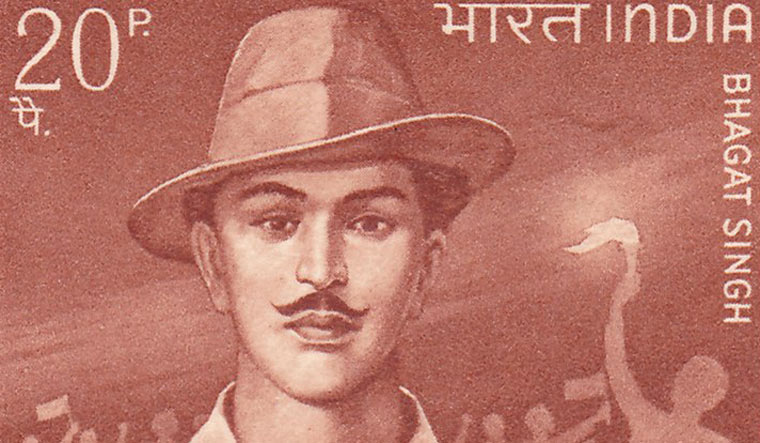'Reminiscences of Lenin', it is said, was the last book Bhagat Singh read. Singh certainly didn’t read to escape. His writings too mirrored his concerns about the lives of people around him. Victor Hugo’s Les Misérables was a book he borrowed a few times from the Dwarka Dass Library in Lahore. Little details like these—unknown and insightful—are part of the Bhagat Singh Archives and Resource Centre, tucked away in a corner of the national capital.
Opened a year ago on March 23—the Martyrdom Day of Bhagat Singh, Rajguru and Sukhdev—the resource centre celebrated its first birthday on Saturday. A treasure house of information on the revolutionary, the archives has been put together by Professor Chaman Lal who spent his life studying and writing about Singh.
Lal, who over the years carefully collected every shred of paper connected to the revolutionary, has now made everything accessible to those interested. The archives is his tribute to the revolutionary who left a legacy that still continues to inspire people across the nation.
The archives go beyond the life and times of Singh to look at his mission—the revolution.
“We have got documents from the collections of Teen Murti, the British Library and the National Archives,’’ says Lal, adding, “In some ways, if anyone wants to study the revolutionary period, it is easier to do so here than the National Archives that has documents which are focused more on the national perspective.”
The archives also caters to researchers of different languages. There are books in Punjabi, English and Hindi. Books that have been out of print for years have been photocopied and are made available to readers.
Besides bringing together everything from the period of the revolutionary, Lal has also contributed his personal collection to the archive—a testimony to his commitment to the cause of spreading the word on Bhagat Singh. There are also letters and postcards written by Singh’s contemporaries that Lal has found and now donated to the archives.
While the library so far has only received serious scholars who want to come and browse, Lal is hoping that in the centenary year of the Jallianwala Bagh—the massacre that is believed to have shocked Singh into becoming a revolutionary—there will be some more takers. “The archive is also an important place for activists as well as common readers,’’ says Lal.
The archive is open from 9:30 to 5:30 on weekdays.



